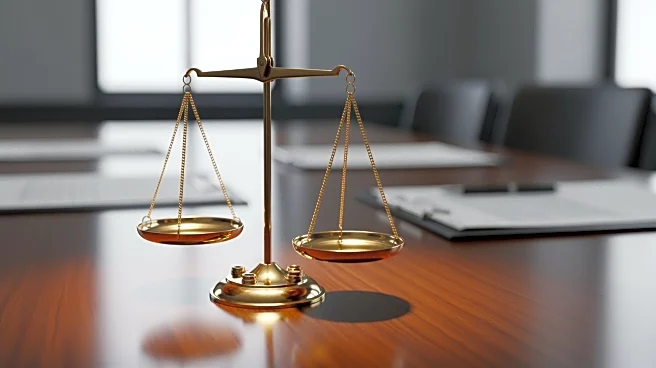Rapid Read • 8 min read
The Federal Aviation Administration (FAA) has been a cornerstone of the aviation industry for over six decades, ensuring the safety, efficiency, and growth of air travel. Established in 1958, the FAA regulates all aspects of civil aviation, including air traffic control, aircraft certification, and safety standards. The agency has continuously adapted its regulations to meet the evolving needs of the industry, from the early days of air travel to the rise of unmanned aircraft systems (UAS). The FAA's role in regulating cutting-edge technologies like drones and autonomous aircraft is increasingly important as the industry faces new challenges related to environmental impact and commercial space travel.
AD
The FAA's regulations are essential for maintaining the safety and reliability of the U.S. aviation industry. By adapting its rules to address emerging technologies, the agency ensures that air travel remains safe and efficient. The FAA's focus on environmental sustainability is crucial as concerns about climate change grow. The agency's efforts to integrate new technologies like drones and autonomous aircraft into the National Airspace System highlight its role in fostering innovation while maintaining safety standards.
The FAA will continue to develop regulations for emerging technologies such as autonomous aircraft and artificial intelligence. As the aviation industry evolves, the agency will likely face challenges related to integrating commercial space travel and urban air mobility. The FAA's ongoing collaboration with industry leaders and global partners will be key to navigating these challenges and ensuring the continued growth and safety of the aviation sector.
The FAA's work has broader implications for public policy and environmental sustainability. By promoting efficient air travel and reducing emissions, the agency contributes to national efforts to combat climate change. The FAA's role in regulating new technologies raises ethical and legal questions about privacy and safety, particularly in the context of drones and autonomous aircraft. As the agency navigates these complex issues, it must balance innovation with the responsibility to protect public safety and the environment.
AD
More Stories You Might Enjoy










